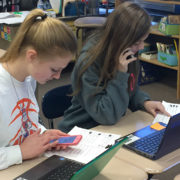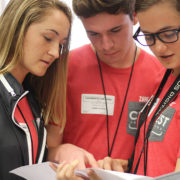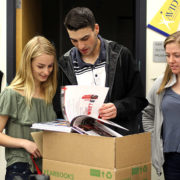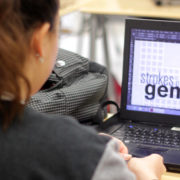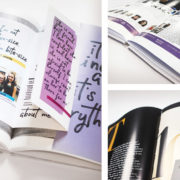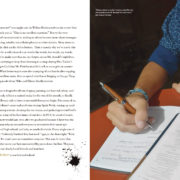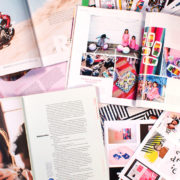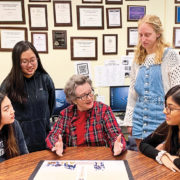The Art of the Interview
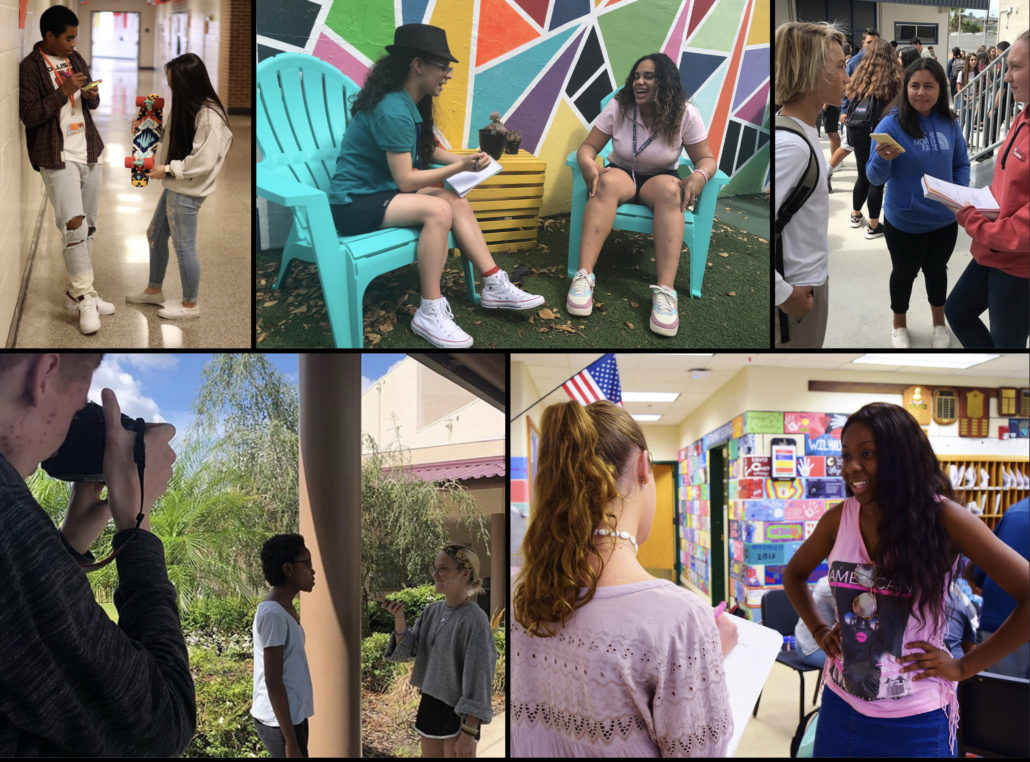
It’s so much more than just getting a quote
I had the privilege, for several summers, of teaching at journalism workshops with Kathy Craghead, the late (and very great) long-time yearbook adviser at Mexico High School in Missouri. She often told the story of looking up from her desk and seeing a yearbook staff member preparing to exit the room.
Her question: “Where are you going?”
The student’s answer: “To get a quote.”
Ms. Craghead likened this to a student leaving the room to get a Coke: Put your money in the machine, out pops a cold can; walk up to a source, get a quote. The end.
But getting a quote is not the same as conducting an interview that will result in full, detailed responses from a student or teacher. Details that will make your yearbook copy come alive and be worth reading, not just on the day your book comes out, but also 10, 20, even 30 years later.
First, you must cover an event at the event. You cannot write about a game, play or concert if you are not there in person, from its beginning (or even before) to its conclusion (or even after). Sending a text a month later and asking questions such as, “What was your favorite part of homecoming?” doesn’t provide anything more than a canned response that could be printed year after year — after year.
If you’re covering an event, you have to show up. You have to see the sights, smell the smells, feel the chill in the air at a football game, hear the audience crack up at the line delivered by a freshman at the spring musical. Those details will add to your copy.
Talking to your sources at the event allows you to provide perspective along with their immediate reaction. Have a yearbook staff member follow a photographer as she shoots an event and interview the photographer’s subjects immediately. Asking for a response of the just-crowned homecoming queen at halftime elicits much more detail than asking her to comment six weeks later when you’re finishing the spread.
While you need to prepare a list of questions, be flexible. If your source provides you with information you didn’t expect, ask a follow-up or two.
And consider ending with this, no matter your topic or source: “Ten years from now, what do you think you will remember about this event/game/occasion?” That question provides perspective and allows your source to see and share the big picture.
Tony Willis
Cathedral HS • Indianapolis, IN
BREAKOUT:
FIVE TIPS FOR CONDUCTING AN INTERVIEW
Be prepared.
Collect background information and research (and this might include talking to individuals who you never quote in your copy) and preparing questions.
Be there.
Conduct the interview where the event occurs. Interview the drum major as she comes off the field at the BOA Grand Nationals, not three weeks later in the school library.
Be flexible.
Yes, be prepared, but don’t just stick to your list of written questions. A good interview is a conversation, not a question-and-answer survey.
Be in the moment.
Take complete, detailed, handwritten notes and also record the interview. Don’t depend on technology to do your job.
Be organized.
As soon as possible after the interview is over, review your notes. Listen to the recording and transcribe the interview, both your questions and the source’s answers. Doing so is the key to getting the correct information and accurate direct quotes
- Reasons to Join Yearbook - January 29, 2025
- Creative Book Sales Tips - January 22, 2025
- Refresh your coverage - January 3, 2025

